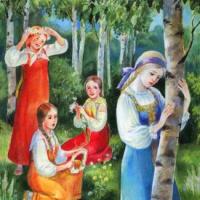Volkov yu g sociology of youth study guide. Volkov Yu.G. Levels of Analysis Sociological Paradigms
Volkov Y., Dobrenkov V., Nechipurenko V., Popov A. Sociology
Foreword
Chapter 1. SOCIOLOGICAL KNOWLEDGE
§ 1.1. Sociology as a science
Sociology and other sciences
Definitions of the subject of sociology
§ 1.2. Development of sociology
Prehistory and socio-philosophical preconditions of sociology
Formation of sociology as a science
Classical sociological theories
Russian sociological thought
Contemporary sociological theories
§ 1.3. Levels of sociological analysis and sociological paradigms
Analysis levels
Sociological paradigms
§ 1.4. Theoretical approaches in sociology
Functionalism
Conflict theory
Symbolic interactionism
§ 1.5. Sociological research
Basic concepts
Stages of sociological research
Research methods
Research ethics
Sociological perspective
Sociological imagination
Chapter 2. CULTURE
§ 2.1. Definitions of culture
§ 2.2. Components of culture
Norms
Values
Symbols and language
§ 2.3. Culture and myth
Basic theories
Ideology
§ 2.4. Unity and diversity of cultures
Cultural universals
Cultural integration
Ethnocentrism
Cultural relativism
Subcultures and countercultures
Cultural evolution
Chapter 3. SOCIALIZATION
§ 3.1. Basics of socialization
The value of socialization
Nature and nurture
Social communication
Definition of the situation
§ 3.2. Personality
Personality characteristics
Self
Mirror Self Theory
The concept of "generalized other"
Experience Management Process
§ 3.3. Socialization throughout the life cycle
Life cycle in different cultures
Childhood
Adolescence
Early maturity, or youth
Middle age, or maturity
Advanced age, or old age
Death
§ 3.4. Re-socialization
Chapter 4.
§ 4.2. Classification of social groups
Social connections
Primary and secondary groups
Internal and external groups
Reference groups
§ 4.3. Group dynamics
Group size
Leadership
Social skimping
Social dilemmas
Group thinking
Conformism
§ 4.4. Social organizations
Characteristics of the organization
Formal organizations
Types of formal organizations
Bureaucracy
Weber's concept of bureaucracy
Disadvantages of bureaucracy
Management in organizations
Informal organizations
Chapter 5. DEVIATION AND SOCIAL CONTROL
§ 5.1. The nature of deviation
Social characteristics of deviation
Social control
Social effects of deviation
§ 5.2. Sociological theories of deviation
Studying deviant behavior
Anomie theory
Cultural transfer theory
Conflict theory
Stigma theory
§ 5.3. Crime and the justice system
Chapter 6. SOCIAL STRATIFICATION
§ 6.1. Social stratification models
Social differentiation
Open and closed systems of stratification
Stratification measurements
§ 6.2. Social stratification systems
Slavery
Castes
Clans
Classes
Gender inequality and social stratification
§ 6.3. Social inequality theories
Functionalist theory of stratification
Conflictological theory of stratification
§ 6.4. The class system of modern societies
Social classes
Stratification of modern Russian society
Identifying social classes
The importance of social classes
Middle class
Poverty in Russia
Deprivation
§ 6.5. Social mobility
Forms of social mobility
Social mobility in industrial societies
Status achievement processes
Chapter 7. RACE, ETHNIC AND GENDER INEQUALITY
§ 7.1. Racial and ethnic stratification
Races, ethnic groups and minorities
Prejudice and discrimination
Dominant group politics
Functionalist and conflictological theories
National and ethnic composition of Russia
§ 7.2. Gender stratification
Female minority
Gender Roles and Culture
Gender identity
Gender Roles in Russia and Western Countries
Chapter 8. FAMILY
§ 8.1. Family structure
The role of the family
Family types
Forms of marriage
The functionalist approach to the family problem
Conflict-based approach to the family problem
§ 8.2. Marriage and family in Russia and the USA
Choosing a partner for marriage
Childhood family
Parental status
Working mothers
Domestic violence, child abuse and incest
Dynamics of marriages and divorces in Russia
Families with a stepfather or mother
Caring for the elderly
§ 8.3. Alternative lifestyles
Reasons for Diversity in Lifestyles
Bachelor life
Unregistered couples
Single parent families
§ 9.2. Education
Training and education
A functionalist approach to education
Conflictology about education
Education in modern Russia
§ 9.3. Health care
A functionalist approach to healthcare
Conflict-based approach to health care
Health care system
Health of the population of Russia
CHAPTER 10. HUMAN ENVIRONMENT
§ 10.1. Ecological environment
Ecosystem
Overpopulation effects
§ 10.2. Population
World population growth
Factors affecting population change
Demographic processes in Russia
Population structure
Malthus and Marx
Demographic transition theory
Demographic policy
Demographic forecast of the world's population
§ 10.3. Urban environment
The origin and evolution of cities
Urban growth models
Russian cities
§ 11.2. Collective behavior
Variety of patterns of collective behavior
Prerequisites for Collective Behavior
Explanations for crowd behavior
§ 11.3. Social movements
Types of social movements
Social revolution
Terrorism
Causes of social movements
Social problems
Conclusion. A LOOK INTO THE FUTURE
Changes in the world
Multipolar world
Russia's place in the world community
Glossary of specific terms
Literature
MOSCOW
2003
The textbook took 1st place in the All-Russian competition (2001) of the Ministry of Education Russian Federation for the creation of textbooks for the cycle "General humanitarian and socio-economic disciplines" in the nomination "Sociology"
Reviewers:
Corresponding Member of the Russian Academy of Sciences, Doctor of Philosophy, Professor A.V. Dmitriev, Doctor of Philosophy, Professor N.S. Sleptsov
Volkov Yu.G., Dobrenkov V.I., Nechipurenko V.N., Popov A.V.
Sociology: Textbook / Ed. prof. SOUTH. Volkov. - Ed. 2nd, rev. and additional - M .: Gardariki, 2003. - 512 p .: ill.
The textbook was written taking into account the state educational standard of the second generation, based on Russian realities and the best foreign and domestic textbooks of sociology, it is distinguished by encyclopedic and "multilayered" presentation, an integral solution learning objectives and aims to give the reader a solid knowledge of sociology. The history of social ideas, basic concepts, directions and paradigms of sociology, as well as its methods are considered. Particular attention is paid to issues of modern sociology.
Designed for students of higher education educational institutions... It is of interest to graduate students and university professors, as well as to a wide range of readers.
FOREWORD
There are few academic disciplines that touch us as closely as sociology. As a science that studies social organizations and interactions, sociology helps us understand the events around us and the social forces that affect us, focuses on those aspects of our social environment that we often ignore, overlook or take for granted. Sociology equips us with a special form of awareness of reality.
The proposed textbook consistently sets out the principles, laws and patterns of the emergence and functioning of human societies, organized into a system by science, which its founder O. Comte called sociology.
The sociology curriculum aims to give students a fairly complete compendium of knowledge about the specifics of sociology and its laws, isolating it from the entire huge mass of information provided by scientific and educational literature.
Material layout and data sociological research, examples from different areas social life will allow the reader without special training to get acquainted with a wide range of sociological problems with the least amount of time.
This tutorial focuses on principles rather than details, fundamentals rather than current issues, and a description of specially selected examples rather than simply listing the facts.
The structure of the textbook preserves the integrity of the sociology curriculum, which allows, according to the authors' intention, to use it optimally, in particular, in preparation for the exam - for systematization and quick assimilation of the material.
Many key topics - the theory and practice of sociological research, culture, socialization, groups and organizations, deviation and social control, social stratification, race, gender, family, religion, society and social change - are dealt with more fully here than in most sociology textbooks. ...
At the end of the tutorial, a list of key terms and definitions is provided. The most important sociological terms are highlighted in type, their definitions are given in the textbook as these terms appear in the text.
Sociological culture is becoming an integral part of Russian reality. In its formation and development, Russian sociology, relying, of course, on its own traditions and achievements, uses the experience of Western sociology. This book is based on the materials of the best foreign and domestic textbooks of sociology - E. Asp, E. Giddens, A. Johnson, J. W. Vander Zanden, R. Lamm and R. Schaefer, A. Mendra, N. Smelzer, J. Ritzer , J. M. Hinslin, as well as many scientific articles.
Interest in sociology is natural for people in general, since a person, being a social being, is himself an object of its study. We are convinced that every educated person should have an understanding of sociology, which is why we wrote this book.
Authors
Volkov Yu.G., Mostovaya I.V. Sociology: Textbook for universities / Ed. prof. IN AND. Dobrenkov. - M .: Gardarika, 1998 .-- 244 p. ISBN 5-7762-0041-5 (Per.)
The textbook is distinguished by the integral solution of educational problems, motivational construction of the text, modern "multi-layered" presentation, which allows consistently and in-depth formation of the thesaurus in the field sociological knowledge... The content is characterized by the modernity of theoretical approaches and the availability of presenting the most complex subjects dynamically developing science, relying on the Russian socio-cultural context in the field of facts and examples, the organic inclusion of the theoretical achievements of modern Russian sociology in the thematic presentation of the course.
In an innovative manner, carried out methodological support text. The textbook contains lists of literature, "portraits" of sociologists, presents a dictionary of special terms, and provides mechanisms for "folded" presentation and reproduction of the text (semantic tables).
Designed for students of higher educational institutions, graduate students, teachers and those who are informally interested in the problems of social structure.
- FOREWORD
- INTRODUCTION
- WHY SOCIOLOGY?
- TOPIC 1 VERY SHORT HISTORY OF SOCIOLOGY
- A SCIENCE THAT IS "UNDERLY YOUNG"
- "Vile empiricists, out-of-the-way scholars"
- CORRESPONDENCE DISPUTE ABOUT THE "LAWS OF PERSPECTIVE"
- TWO LEVELS OF SOCIOLOGICAL ANALYSIS
- BASED ON SOLIDARITY OR STRUGGLE?
- Portraits of Sociologists
- Self-study questions
- Literature
- Appendix 1. Materials for the colloquium on Russian sociology
- Appendix 2. Program in-depth study history of sociology
- THEME 2 RULES OF SOCIOLOGICAL KNOWLEDGE
- CLASSIC, MODERN AND POST-MODERN IN SCIENCE
- CONCEPTS OF "SUBJECT" AND "METHOD"
- CRISES OF KNOWLEDGE AND THE STRUCTURE OF KNOWLEDGE
- IS SOCIOLOGY A SCIENCE?
- Portraits of Sociologists
- Self-study questions
- Literature
- Appendix. Discussion plan "Problems of Sociological Cognition"
- THEME 3 PERSONS IN THE PUBLIC CONTEXT
- OPPORTUNITIES TO BECOME A HUMANITY
- ENVIRONMENT - SOCIAL COMMUNITIES
- RIDDLES OF THE ORIGIN OF ASSOCIATIONS
- WHAT IS "SOCIETY"?
- THEORY OF ORIGIN OF SOCIETY
- MODERN SOCIETY: HUMANIZATION OF THE ENVIRONMENT
- FEATURES OF MODERNIZATION IN RUSSIA
- Portraits of Sociologists
- Self-study questions
- Literature
- Appendix. Workshop on compiling a sociomatrix
- THEME 4 PRODUCTION OF THE SOCIAL STRUCTURE
- ORGANIZATION OF "RELATIONSHIP" AND "BEHAVIOR"
- INSTITUTIONAL STRUCTURE
- SOCIAL STRATIFICATION AND MOBILITY
- STUDYING SOCIAL DISPOSITION
- INEQUALITY AS A SOURCE OF BUNDLING
- INEQUALITY AS A STRUCTURE STABILIZER
- FIGHT FOR "FAIR INEQUALITY"
- THE "BOILING UNIVERSE" OF SOCIAL GROUPS
- MOVEMENT IN SOCIAL SPACE
- SOCIAL MOBILITY ALGORITHMS
- WHAT IS KNOWLEDGE OF SOCIAL STRUCTURE GIVES
- Portraits of Sociologists
- Self-study questions
- Literature
- Appendix. Sociodrama "Unequal Marriage"
- TOPIC 5 DEVELOPMENT OF SOCIAL GOVERNANCE
- SYSTEMS CRISIS AND GOVERNANCE INNOVATION
- SOCIAL GOVERNANCE PUZZLE
- SOCIAL SYSTEM SECURITY
- SECURITY OF THE "TRANSITIVE" SOCIETY
- Portraits of Sociologists
- Self-study questions
- Literature
- Appendix. Conference "Management in modern world»
- THEME 6 SOCIAL IDENTITY OF PERSONALITY
- PERSONAL CONCEPTS IN SOCIOLOGY
- MACROSOCIOLOGICAL CONCEPTS OF PERSONALITY
- MICROSOCIOLOGICAL CONCEPTS OF PERSONALITY
- Portraits of Sociologists
- Self-study questions
- Literature
- Appendix. Business game"Friday. Saturday. Sunday"
- THEME 7 SOCIAL CULTURE
- CONCEPT OF CULTURE IN SOCIOLOGY
- CIVILIZATION PROGRESS
- UNIVERSALS OF CULTURE
- INTERACTION OF CROPS
- Portraits of Sociologists
- Self-study questions
- Literature
- Appendix. Seminar "Culture as social phenomenon»
- DICTIONARY OF SPECIAL TERMS



